AITA for telling my classmate to go f herself after she framed me as an ableist and made my semester h**l?
In the midst of a bustling spring semester, a quiet struggle unfolded within the classroom walls, revealing how easily misunderstandings can fracture the fragile bonds of empathy.
What began as a private vent about distraction soon spiraled into a painful confrontation, exposing the raw emotions beneath the surface of accessibility and inclusion.
Caught between intention and impact, a student’s offhand comment became a lightning rod for feelings of exclusion and judgment.
The encounter laid bare the complexities of navigating difference, showing how words, even when unmeant to harm, can wound deeply and challenge the very meaning of belonging.

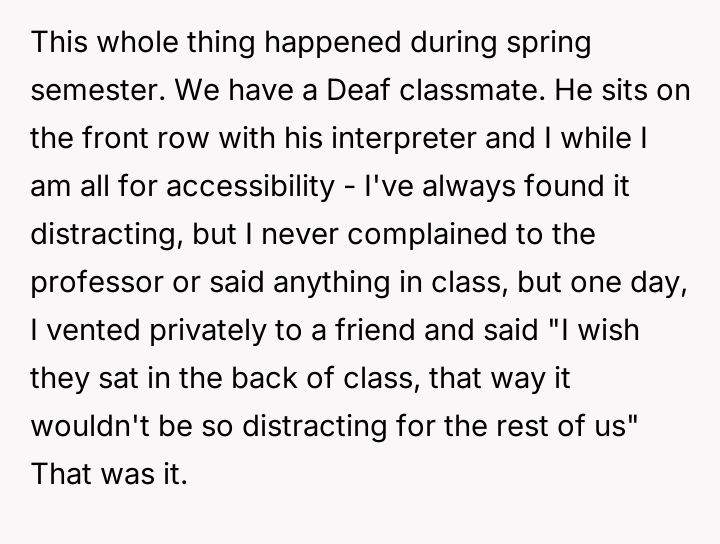

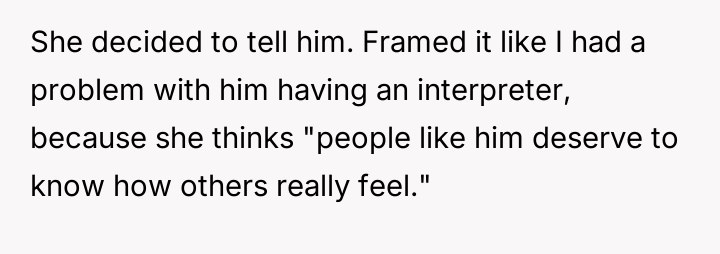
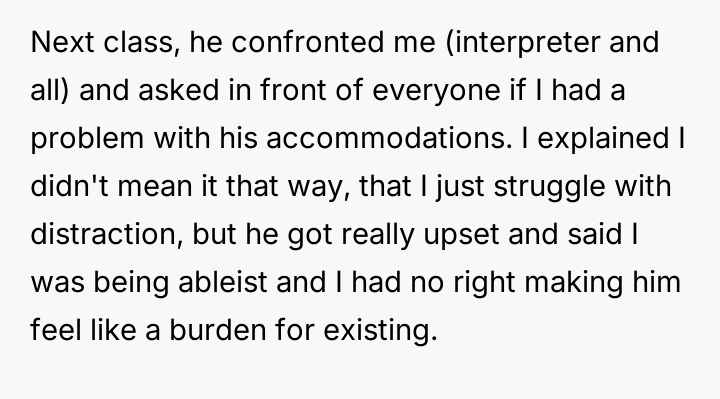
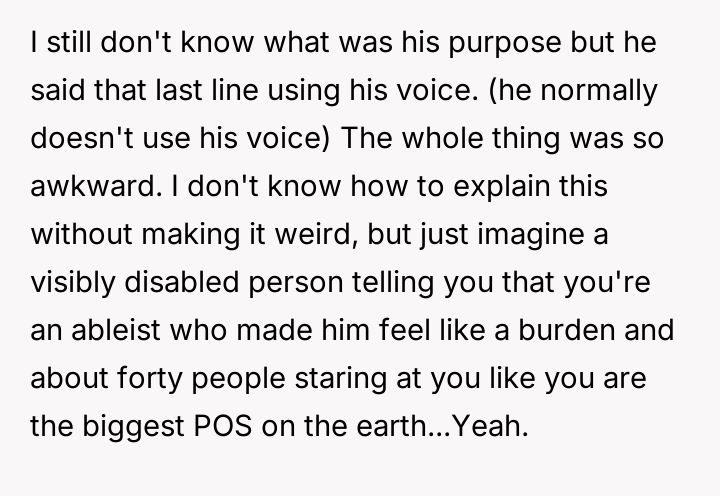
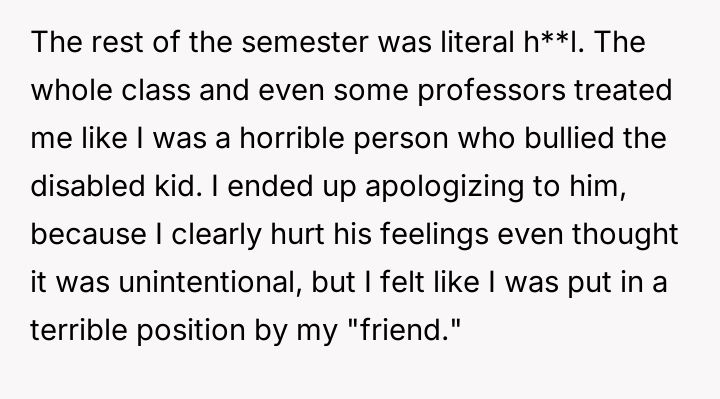
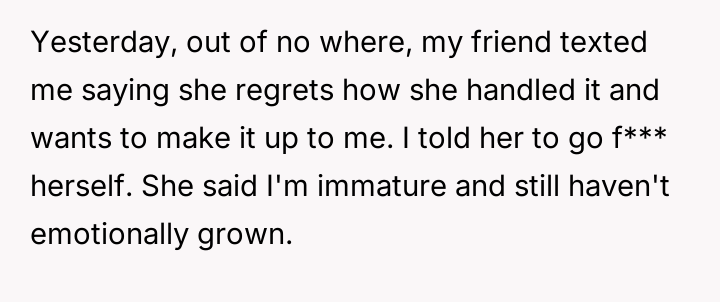

Subscribe to Our Newsletter
No spam, unsubscribe anytime. Privacy Policy
Commenters Came in Hot with Their Takes:
It didn’t take long before the comment section turned into a battleground of strong opinions and even stronger emotions.
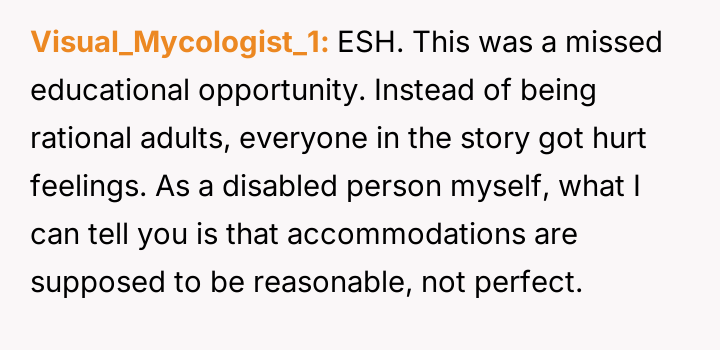

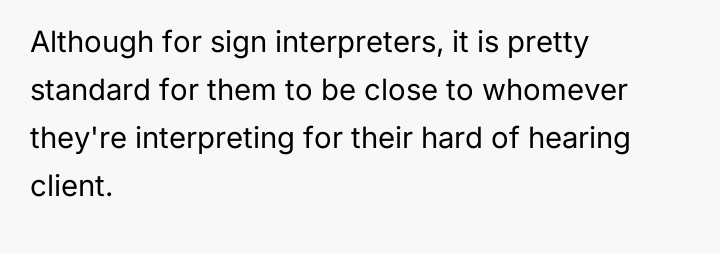
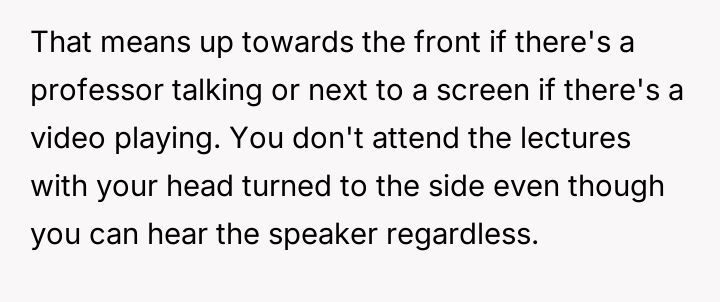
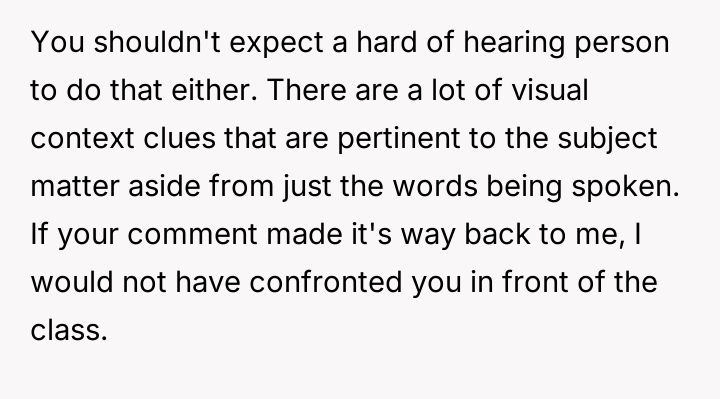
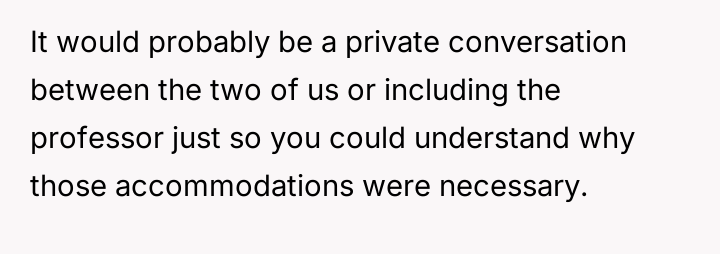
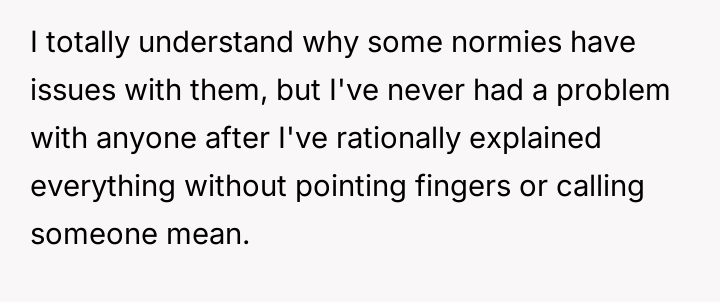

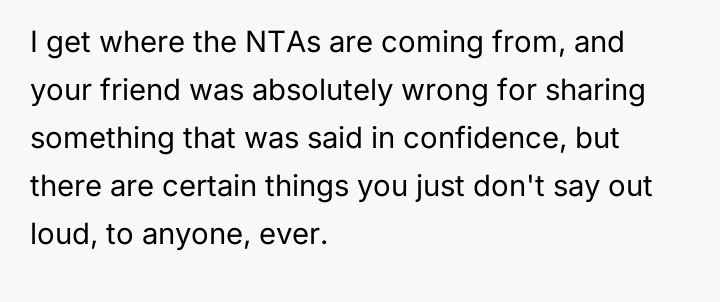
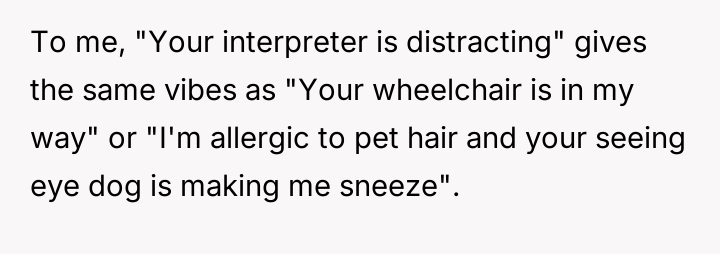
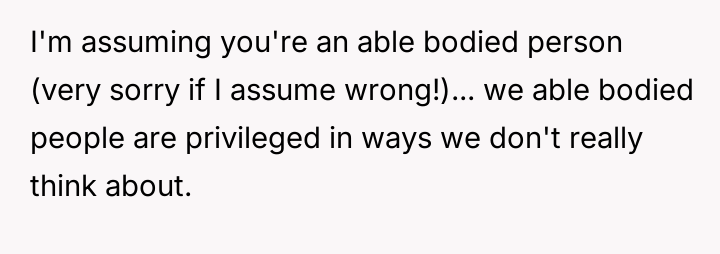
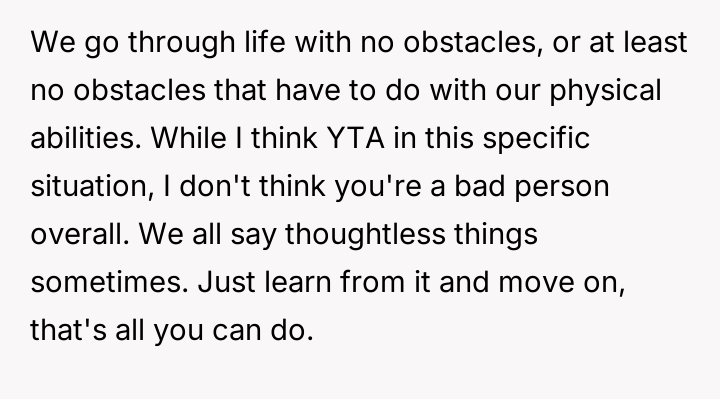
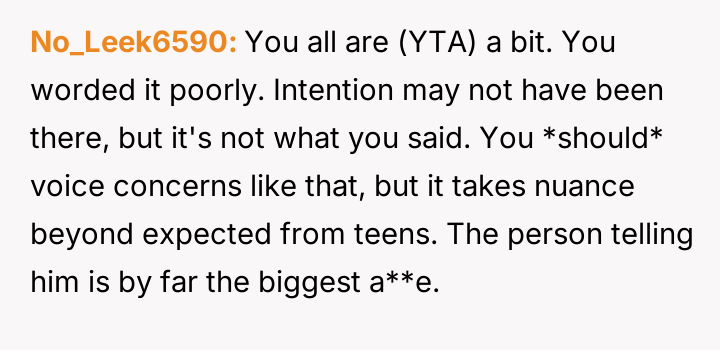
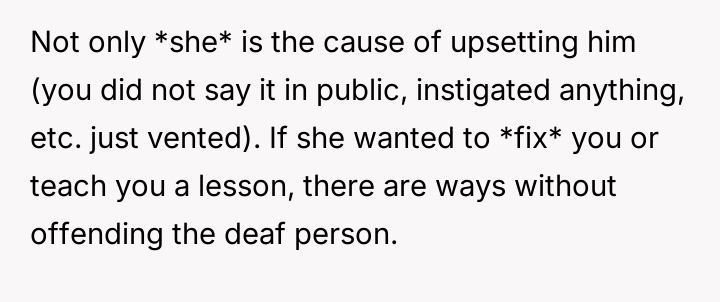
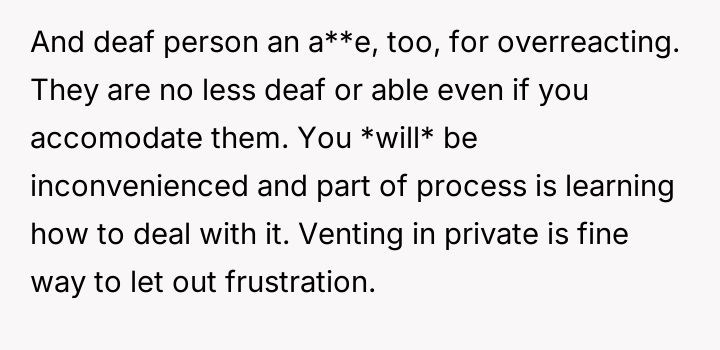
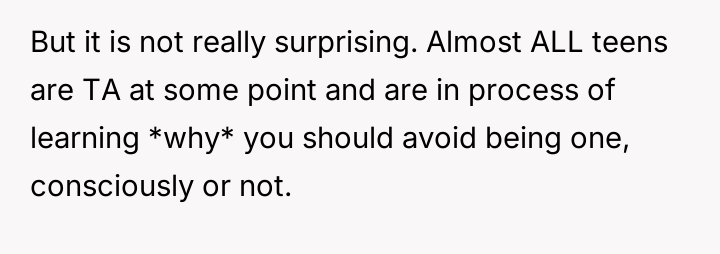
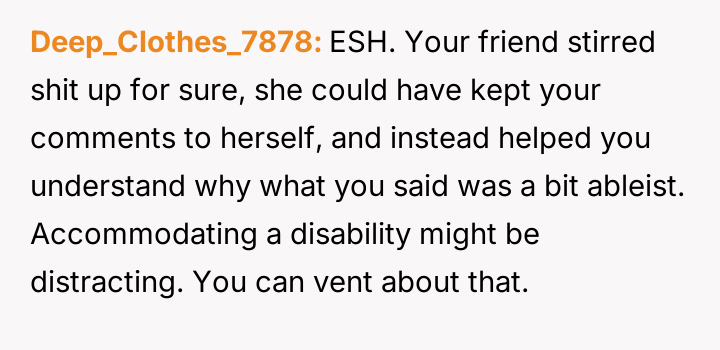
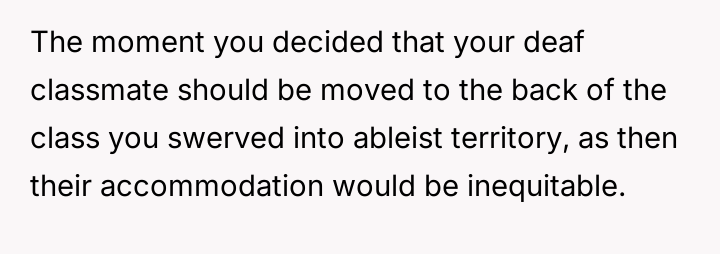
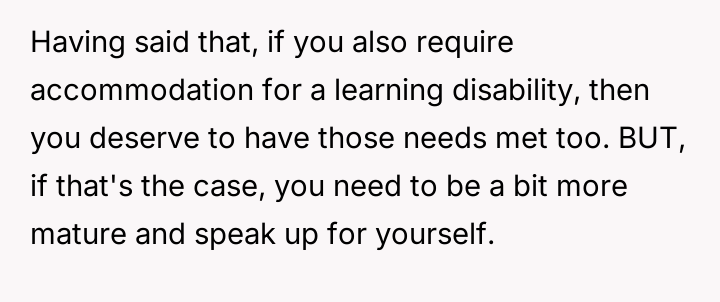

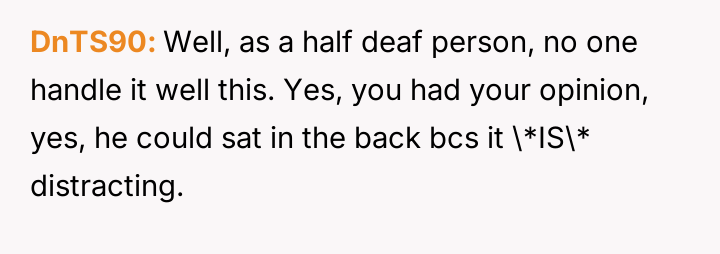
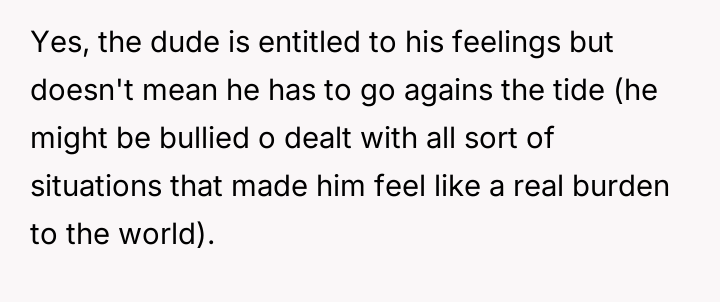
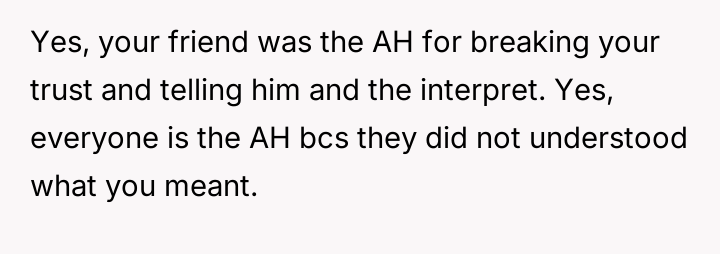
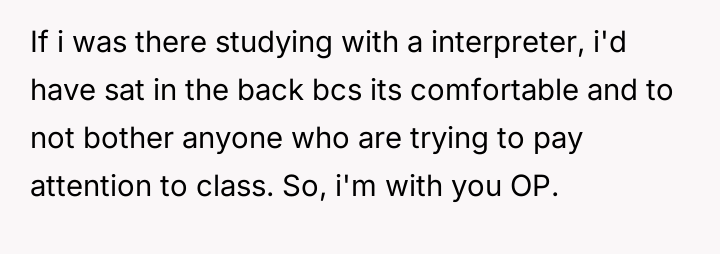
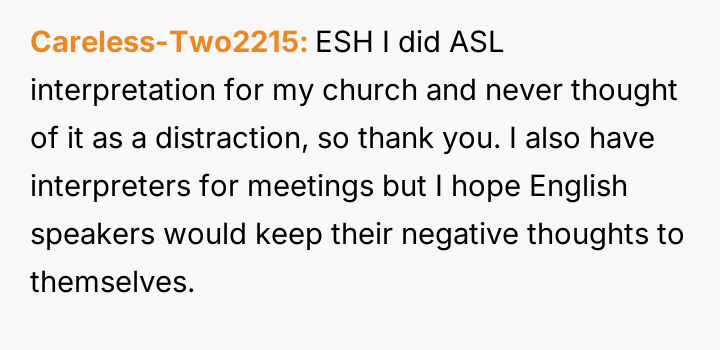


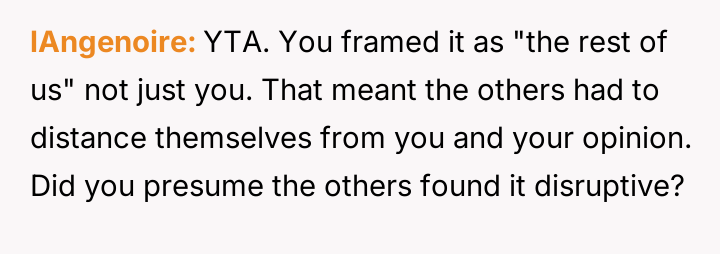
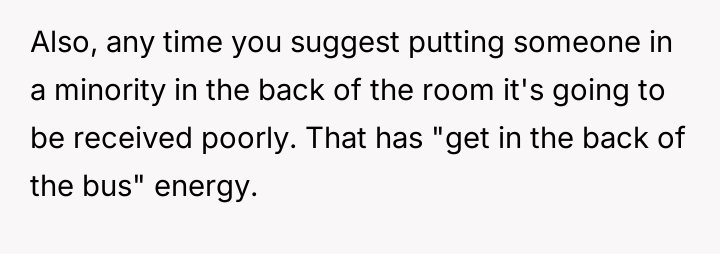
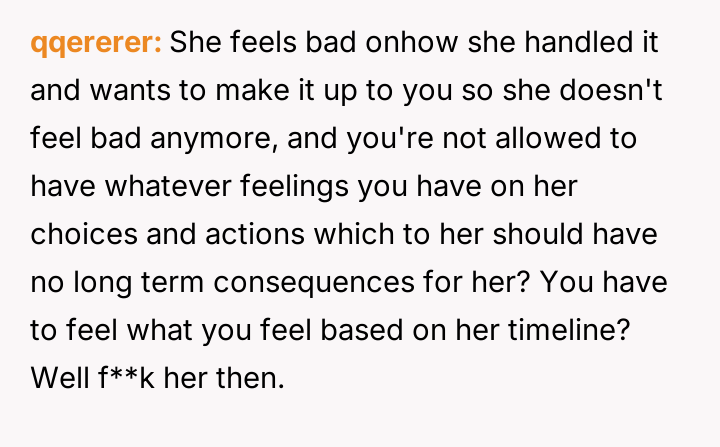
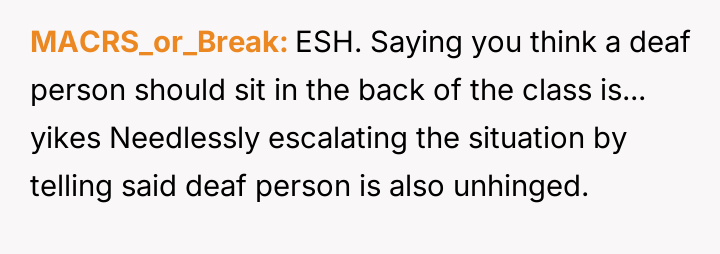
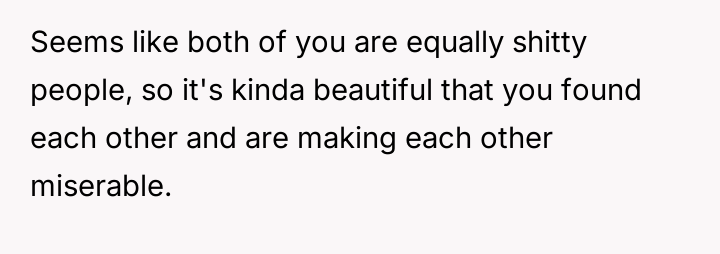
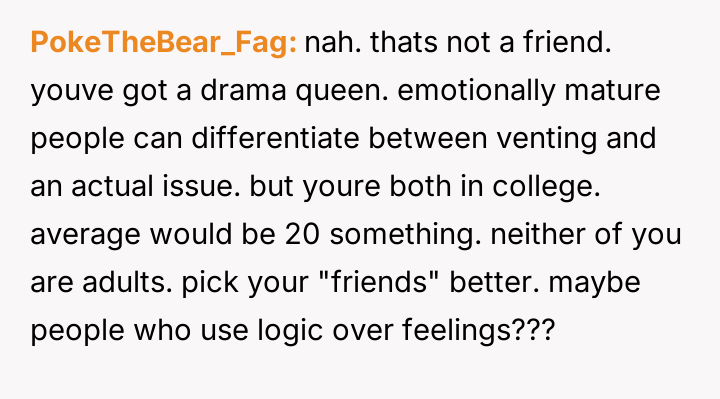
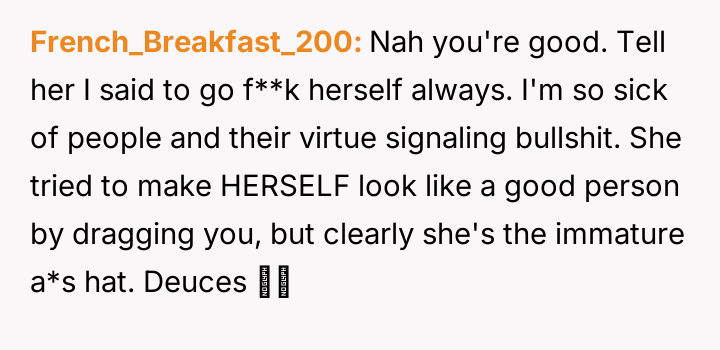
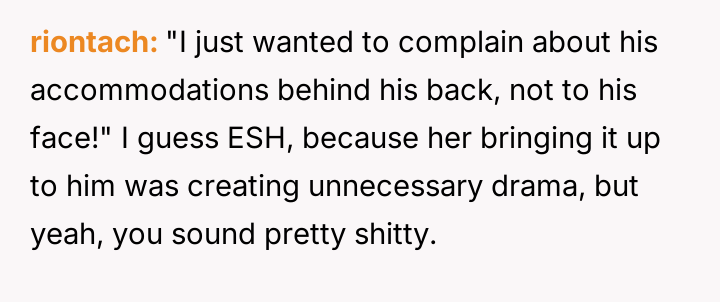
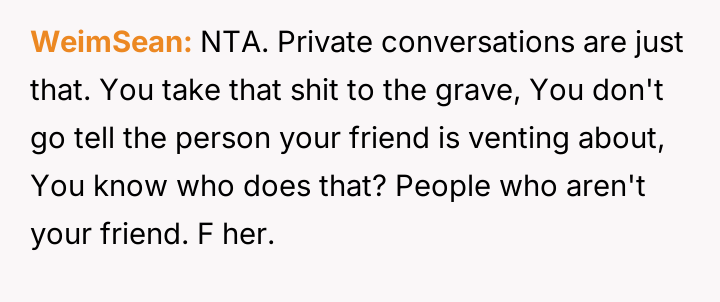
The original poster (OP) is struggling with the fallout from an unintentional comment made while venting privately about classroom distractions caused by an interpreter's presence.
The central conflict arises from a friend sharing this private vent, which led to a public confrontation where the OP was labeled as ableist, causing significant social and academic distress for the remainder of the semester.
The core debate is whether the OP's initial, private venting about distraction justifies the severe public shaming and ostracization they experienced, or if the friend's decision to relay a private complaint as an accusation of malice was an unforgivable breach of trust that escalated the situation beyond reasonable limits?

